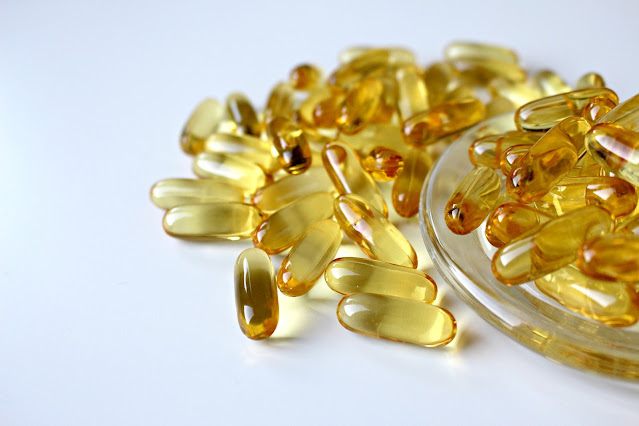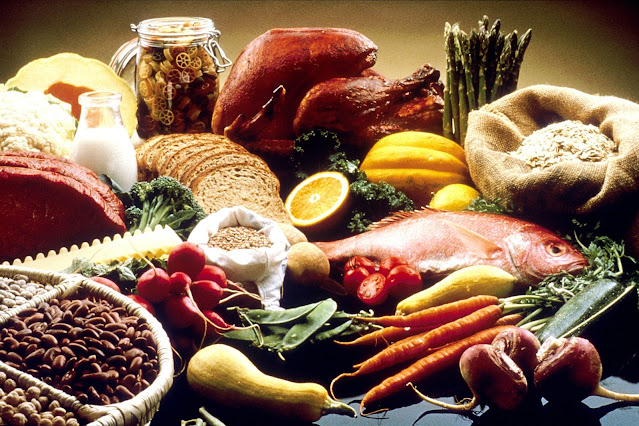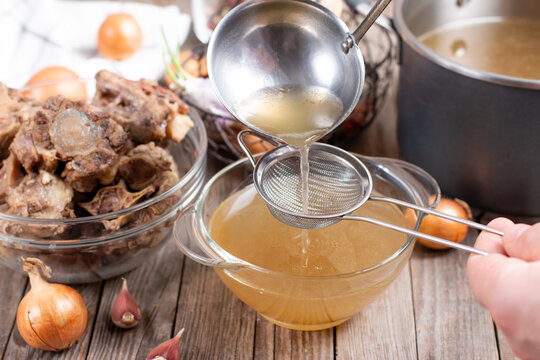Nutrition for Weightlifting: Fuel Your Body for Optimal Performance
Nutrition plays a critical role in weightlifting performance and progress. Proper nutrition can provide the energy, nutrients, and hydration necessary for workouts, muscle growth, and recovery. A well-rounded nutrition plan should include a balance of macronutrients such as protein, carbohydrates, and fats, as well as micronutrients such as vitamins and minerals. Weightlifters should also consider meal timing, hydration, and supplements to optimize their nutrition plan. In this article, we will explore the different aspects of nutrition for weightlifting and provide tips on how to optimize your diet for optimal performance and progress.
1. Macronutrient Ratios: Protein, Carbs, and Fats
Macronutrients are the three essential nutrients that provide energy to the body - protein, carbohydrates, and fats. When it comes to weightlifting, the ideal macronutrient ratio is crucial for muscle growth, recovery, and overall performance.
Protein is essential for weightlifters as it helps repair and rebuild muscle tissue. The recommended intake for protein is 1.6 to 2.2 grams per kilogram of body weight. Sources of protein include lean meats, poultry, fish, eggs, and plant-based sources such as beans and nuts.
Carbohydrates are the body's primary source of energy, making them important for weightlifters. The recommended intake for carbohydrates is 3-5 grams per kilogram of body weight. Sources of carbohydrates include fruits, vegetables, whole grains, and dairy products.
Fats are essential for hormone production, joint health, and energy production. The recommended intake for fat is 0.5 to 1 gram per kilogram of body weight. Sources of healthy fats include nuts, seeds, avocados, and fatty fish.
The ideal macronutrient ratio for weightlifters is 40% protein, 40% carbohydrates, and 20% fats. However, this ratio may vary depending on individual needs and goals. It's essential to track your macronutrient intake and adjust accordingly to optimize performance and results.
In conclusion, macronutrient ratios play a vital role in weightlifting, and it's essential to have a balanced intake of protein, carbohydrates, and fats to fuel your body for optimal performance and muscle growth. Remember to consult with a registered dietitian or healthcare professional for personalized advice.
Keywords: macronutrient ratio, protein for muscle growth, carbohydrates for energy, fats for hormone production.
2. Meal Timing
When it comes to weightlifting, meal timing is as important as the foods you eat. Eating the right foods at the right time can help optimize your performance, recovery, and muscle growth.
The ideal timing for a pre-workout meal is 1-2 hours before your workout. This meal should contain both protein and carbohydrates to provide energy and prevent muscle breakdown. Examples of pre-workout meals include a chicken and sweet potato dish, a protein shake with fruit, or a turkey and avocado sandwich on whole grain bread.
Post-workout snacks are also essential for weightlifters. Consuming a snack with protein and carbohydrates within 30 minutes of your workout can help with muscle recovery and glycogen replenishment. Examples of post-workout snacks include a protein shake with fruit, a smoothie bowl with protein powder and fruit, or a Greek yogurt with berries and granola.
It's important to note that meal timing may vary depending on individual preferences and schedules. Some people prefer to workout in the morning and have breakfast as their pre-workout meal, while others may workout in the evening and have dinner as their post-workout meal.
In conclusion, meal timing is an important aspect of nutrition for weightlifting. Eating the right foods at the right time can help optimize your performance and muscle growth. Remember to consult with a registered dietitian or healthcare professional for personalized advice on meal timing and nutrition for weightlifting.
Keywords: meal timing for weightlifting, pre-workout meal, post-workout snack, muscle recovery.
3. Hydration
Proper hydration is crucial for weightlifters to optimize their performance and prevent dehydration. When you exercise, you lose fluids through sweat, and it's essential to replace them to avoid dehydration, which can lead to fatigue, cramps, and impaired performance.
The recommended daily intake of water for adults is 2 to 3 liters, but weightlifters may need more depending on their activity level and climate. As a general guideline, aim to drink at least 8-10 glasses of water a day and an additional 1-2 cups before and after your workout.
In addition to water, sports drinks can also be beneficial for weightlifters. Sports drinks contain electrolytes such as sodium and potassium, which are lost through sweat and help with hydration and muscle function. However, be cautious of added sugars in sports drinks, and opt for low-sugar or sugar-free options.
It's also essential to monitor your urine color to assess your hydration levels. A pale yellow color indicates good hydration, while a darker yellow color may indicate dehydration.
In conclusion, proper hydration is crucial for weightlifters to optimize their performance and prevent dehydration. Aim to drink at least 8-10 glasses of water a day, and monitor your urine color to assess your hydration levels. Remember to consult with a healthcare professional if you have any concerns about hydration or fluid intake.
Keywords: hydration for weightlifting, water intake, body temperature regulation, fatigue prevention.
4. Supplements
Supplements can be a useful addition to a weightlifter's diet, but they should not replace a well-rounded nutrition plan. Here are some supplements that may be beneficial for weightlifters:
 |
Supplements |
Protein powder: Protein powder can be a convenient way to increase your protein intake and support muscle growth and recovery. Whey protein is a popular choice for weightlifters, but there are also plant-based options available.
Creatine: Creatine is a natural compound found in muscle cells that can help with energy production and muscle growth. Supplementing with creatine may increase strength, power, and muscle size.
Beta-alanine: Beta-alanine is an amino acid that can help reduce fatigue and improve exercise performance. It may also increase muscle endurance and delay muscle fatigue.
Caffeine: Caffeine is a natural stimulant that can help increase energy, focus, and endurance. It may also help with fat loss by increasing metabolism and suppressing appetite.
Vitamin D: Vitamin D is important for bone health and muscle function. It may also help with muscle strength and endurance.
It's essential to note that supplements are not regulated by the FDA, and quality may vary between brands. It's important to do your research and choose reputable brands that have been third-party tested.
In conclusion, supplements can be a useful addition to a weightlifter's diet, but they should not replace a well-rounded nutrition plan. Protein powder, creatine, beta-alanine, caffeine, and vitamin D are some supplements that may be beneficial for weightlifters. Remember to consult with a healthcare professional or registered dietitian before starting any new supplement.
Keywords: supplements for weightlifting, whey protein, creatine, BCAAs.
5. Whole Foods
Whole foods are a crucial aspect of nutrition for weightlifters. These foods provide essential nutrients such as vitamins, minerals, and fiber that are important for muscle growth, recovery, and overall health. Here are some examples of whole foods that weightlifters should include in their diet:
 |
| Whole Foods |
Lean protein sources: Lean protein sources such as chicken, turkey, fish, tofu, and legumes provide essential amino acids that support muscle growth and repair.
Whole grains: Whole grains such as brown rice, quinoa, and whole wheat pasta provide carbohydrates that provide energy for workouts and promote muscle recovery.
Fruits and vegetables: Fruits and vegetables are rich in vitamins, minerals, and antioxidants that support overall health and can help reduce inflammation.
Nuts and seeds: Nuts and seeds such as almonds, walnuts, and chia seeds provide healthy fats and protein that can help with muscle recovery and provide energy.
Dairy or dairy alternatives: Dairy or dairy alternatives such as milk, yogurt, and plant-based milk alternatives can provide calcium, vitamin D, and protein that are important for bone health and muscle function.
In conclusion, whole foods are a crucial aspect of nutrition for weightlifters. Lean protein sources, whole grains, fruits and vegetables, nuts and seeds, and dairy or dairy alternatives are examples of whole foods that weightlifters should include in their diet. Remember to aim for a well-rounded nutrition plan that includes a variety of whole foods to support your overall health and fitness goals.
Keywords: whole foods for weightlifting, essential nutrients, lean meats, fish, whole grains, fruits, and vegetables.
In conclusion, nutrition is a critical component of weightlifting, and following the best practices can help you achieve your goals. By optimizing your macronutrient ratios, meal timing, hydration, and incorporating whole foods and supplements, you can fuel your body for optimal performance.





Post a Comment